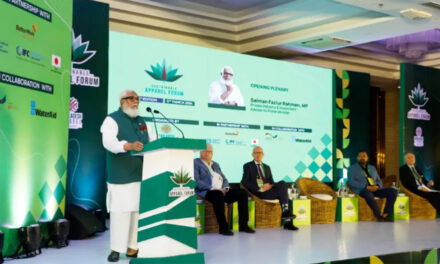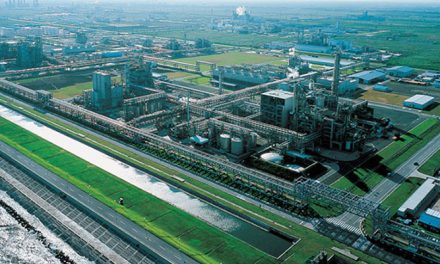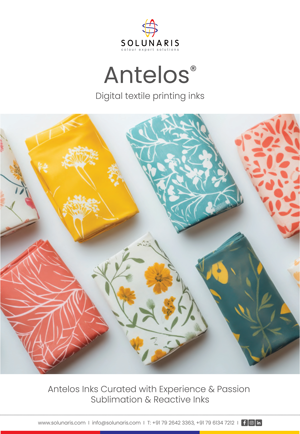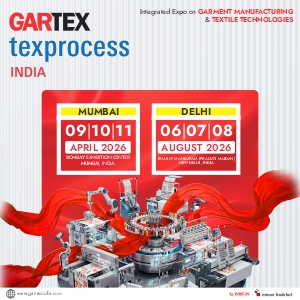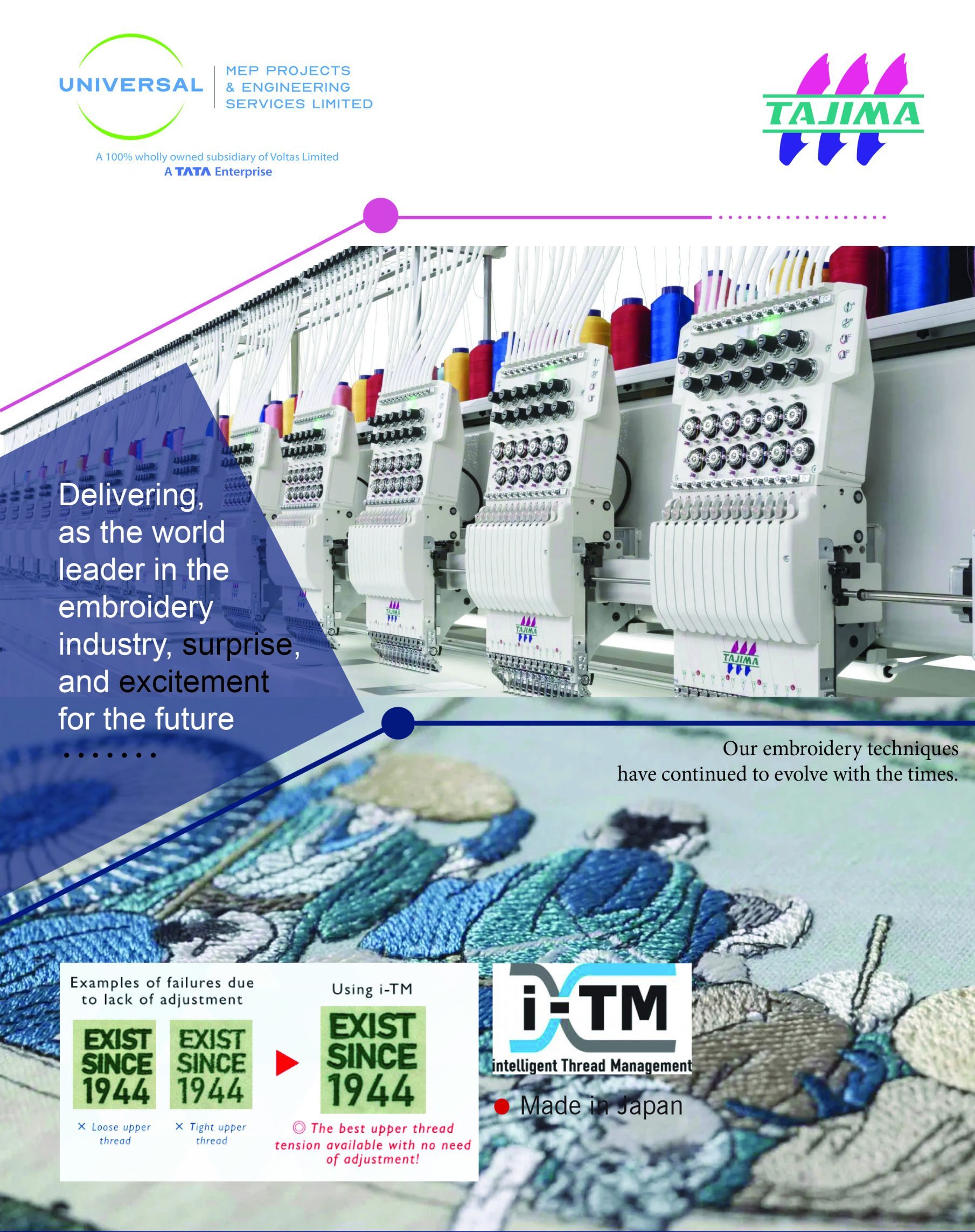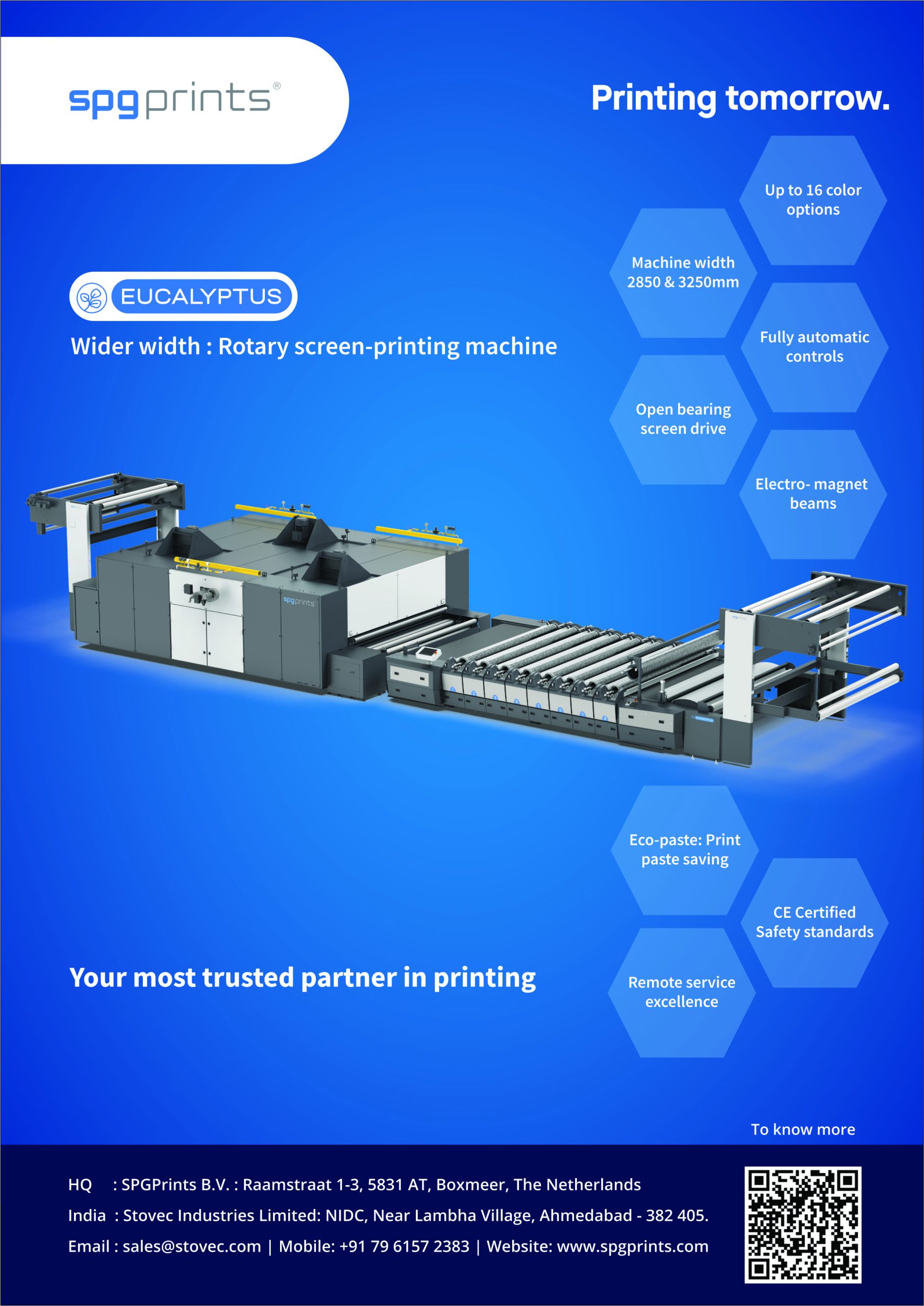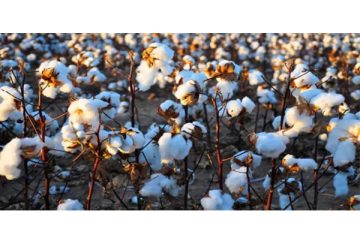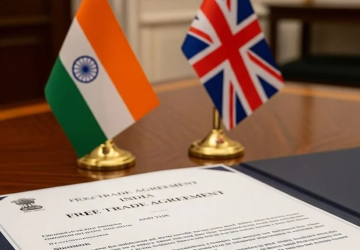
BD 480 rotorspinning line at Balaji Mill funded by GFF, replacing older BD 200 rotor line
The Good Fashion Fund, managed by FOUNT, made its second investment in India with Sri Kannapiran Mills Limited in 2023 for a USD 2.5 million US dollar, long-term loan supporting replacement and modernisation of key equipment in two cotton spinning mills (KG Naidu Mill, Balaji Mill) and a denim weaving unit (KG Fabriks). Following on-site monitoring and offline assessments in Q1 and Q2 ’25 by GFF and third-party advisors, the investment confirmed notable positive results documented in a deep dive case study, a first for the industry, highlighting the financial savings, resource efficiency gains and social improvements in the Tier 2 and Tier 3 units of Sri Kannapiran Mills.
Independent monitoring validates impact
In February this year, the Good Fashion Fund conducted an annual progress assessment of Coimbatore based Sri Kannapiran Mills, supported by expert advisors including Bureau Veritas, Fairwear Foundation, GlobalCAD and adelphi Consult. The evaluation aimed to establish the outcomes of the Good Fashion Fund loan in June 2023 to replace legacy equipment – some over 25 years old – and to automate manually intensive spinning operations. A follow-up technical assessment in June further validated the energy performance of the GFF-funded equipment in the Tier 2 (KG Fabriks) and Tier 3 factories (KG Naidu Mill, Balaji Mill) compared to the baseline year of 2023.
The verified findings confirmed that the investment comfortably surpassed the minimum 50% environmental savings target for financed key equipment – specifically Good Energy and Good Materials – supported by tangible financial savings (Good Economy). It has also delivered direct tangible improvements on environmental and social action items based on the initial due diligence by the fund, resulting in a replicable blueprint or model for other Tier 2 and 3 factories operating legacy systems.
With the funding, SKML installed newer model rotor spinning machines, auto doffers, auto blender and high-speed winding machines – that operate more efficiently than the legacy equipment. For the weaving unit, the company upgraded its singeing machine, purchased several second-hand air jet looms and a cone winding machine – improving overall capacity and efficiency. In the period since the investment, the company has also improved its energy mix to 58.1% solar (vs 32.6%), 20.7% wind (vs 18.1%), 10.8% natural gas (vs 25.6%) and the remainder from the grid (as of Mar ’25).
“Without the Good Fashion Fund, we may not have moved forward with these upgrades so confidently. As an SME navigating a turbulent global supply chain—marked by trade disruptions, rising input costs, and sustained margin pressures—long-term investments are difficult to justify without the right support. The flexible capital and technical guidance from GFF helped us take a leap we couldn’t have taken alone. We’re now seeing the benefits—not just in cost savings and operational improvements, but also in product quality, data systems, and progress on worker well-being. It has shown us what’s possible” said Srihari Balakrishnan, Managing Director of Sri Kannapiran Mills.

(L to R) Jayaraj (SKML), Ravi Kumar (Fairwear), David Varghese (Fairwear), Gurunathan (SKML), Krishnakumar (SKML), Srihari Balakrishnan (SKML), Seenivasahan (SKML, Sruthi Ramesh (GFF), Bob Assenberg (GFF), Jayanth Kashyap (GFF), Dr. Jürgen Hannak (adelphi Consult). Not in picture –Rakesh Vazirani (Bureau Veritas), Jagadish VP (Bureau Veritas), Sudalaimuthu VS (Bureau Veritas)
Key results from the monitoring of GFF financed equipment (2024)
Environmental
• Up to 59% reduction in energy consumption from key equipment – 886,439 Kwh saved annually •
• Up to 95% reduction in cotton waste generation – 4,756 Kgs annually saved
• ~1272 tons of Co2 saved from GFF financed equipment
Social
• Safer working conditions due to automation of manual doffing process
• Enhanced environmental and social governance through data monitoring systems
• Improved grievance mechanisms and health & safety measures implemented
Financial
• USD 140,000 annual approx. grosssavingsfrom energy-efficient spinning and waste reduction
• USD 115,000 annual approx. grosssavingsfrom improved weaving production efficiency
• Monthly fabric output increased to 220,000 meters due to additional air jet looms

GFF monitoring and verification team at KG Naidu and Balaji Mill
Rakesh Vazirani, Head of Decarbonization Bureau Veritas commented, “Bureau Veritas verified the GFF investment’s impact at three SKML units, confirming 886,469 kWh of annual energy savings and up to 95% yarn waste reduction in 2024. Our two-part assessment found SKML’s culture of structured data and cross-functional collaboration key to success. Upgrades like auto-doffers, Saurer rotor machines and Reshmi winders boosted energy and material efficiency while enabling stronger operational monitoring. The transformation was enabled by GFF’s hands-on approach, SKML’s leadership, and alignment with evolving frameworks like Higg FEM and EU CSRD. This verification by BV was led by Mr. Jagadish VP with support from Mr. Sudalaimuthu VS.”
Release of case study and industry relevance
With the support of advisors GlobalCAD and adelphi Consult, the GFF is proud to release a deep dive case study, along with this announcement, providing a closer view of the fund’s use of proceeds, environmental and financial outcomes, and social improvements enabled by the fund’s capital and technical assistance. As one of the first publicly documented examples of impact validation in Tier 2 and Tier 3 textile manufacturing, the case study offers valuable insights for investors, brands, and ecosystem stakeholders looking to accelerate supply chain transition.
These results reflect the effectiveness and additionality of impact investment in driving transformation within the deeper tiers of the textile supply chain beyond Tier 1 – particularly for small and medium sized enterprises (SMEs) that are the most resource intensive and yet, undercapitalised, underserved by technical assistance and not yet reached by brand-led initiatives.
The SKML case demonstrates how targeted financing and manufacturer leadership can work together to deliver credible, measurable progress—at a time when brands are under growing pressure to decarbonise and derisk their supply chains without excluding the well-being of the millions of workers embedded in them. It’s a practical example of how real alignment between sustainability commitments and factory-level action can be achieved.
Speaking on the impact and case study, Bob Assenberg, Co-Founder FOUNT and Fund Director Good Fashion Fund, “Sri Kannapiran Mills exemplifies the kind of front-running manufacturer the Good Fashion Fund is proud to support. Their focus on continuous improvement—not just through upgraded equipment, but through data-driven decision making and in-house innovation—shows that transformation doesn’t always require acquiring the newest or most advanced technology.
It requires a mindset. By prioritising what’s available, affordable, and adaptable to their context, SKML has delivered measurable improvements and built a foundation for long-term progress. This case strengthens our conviction that catalytic finance must go deeper into the supply chain—and it directly informs the design of Good Fashion Fund 2.0, which will aim to create stronger alignment between brands’ and manufacturers’ sustainability strategies”


